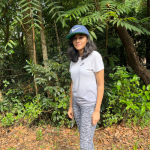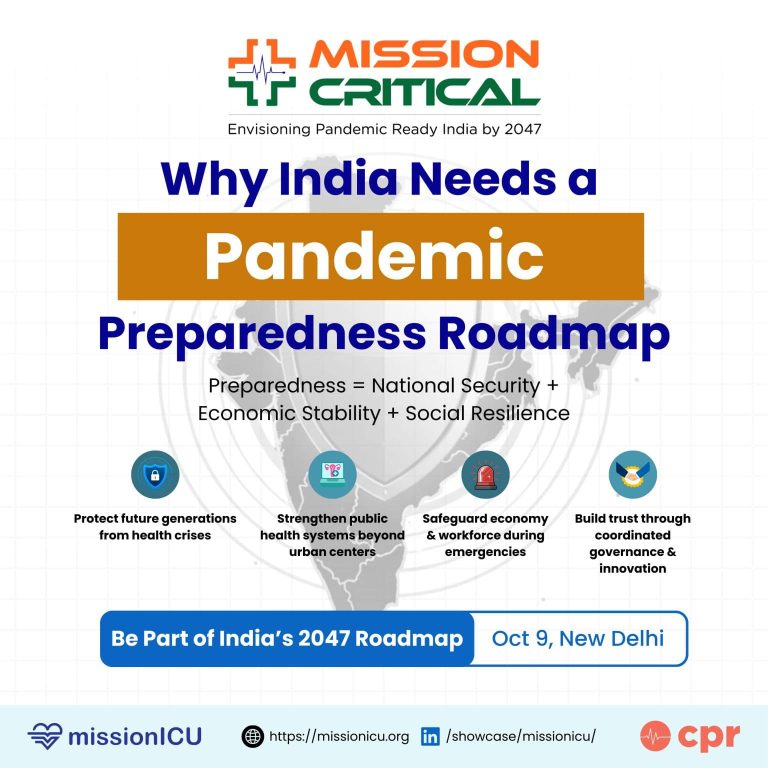“I chose to take up community medicine because I did not want my medical career to be oriented towards providing help on a one-to-one basis but rather have a big impact on society” These were the words of Dr. Lalitha K when asked about what drew her to take up community medicine. In spite of a busy schedule, she went ahead and shared many of her experiences and thoughts in life during an interview with me, being the sport she is.
Dr Lalitha was once a wide eyed medical student who at the time of her internship had to a make choice with respect to what kind of a doctor she wanted to be and found her calling in the field of community medicine. She always felt that she had an inclination to spend her life in the field of medicine by being involved with society and interacting with people. Currently serving as a professor and Head Of the Department at M S Ramaiah Medical College, Bangalore, she has absolutely no regrets in having chosen the field that she did. She did her MBBS and MD in Community Medicine and her DNB in Preventive and Social medicine in Bangalore. Apart from her professional life, she loves indulging in music.
Having to chose Community Medicine over Internal Medicine during her post graduation was one of the hardest choices Dr. Lalitha has had to make in her life. Nevertheless it isn’t one that she would ever regret. She was also offered an ICMR job that she ended up rejecting since she wanted to do something that included aspects of both teaching and research work and hence decided to stay back here. She always wanted to work with the community and felt that a completely research oriented job wouldn’t do justice to her wishes.
When asked about any incident or activity in her field of practice that had a profound impact on her, she looks back at her postgraduate days during which she was involved in the evaluation of the National Leprosy Program. “There was an integration of the vertical program into the horizontal program and I think that gave me a very rich experience and allowed me to travel across the country and broaden my understanding of Community Medicine. It certainly gave me so much personal confidence and helped change my personality and nurture independence” she says. She thinks that there is strong stigma attached with leprosy and many community healthcare workers are trying to make a change of that perception and over the years they have been able to change people’s outlook towards the disease. The role of NGOs have been truly instrumental especially in North India where the cases happen to be more prevalent. She feels that as a community health professional one shouldn’t expect magical results win terms of an immediate solution. It takes a long time to make a difference but every effort would prove to be constructive and the result would be profound and deep-rooted.
Dr. Lalitha has worked with numerous organisations and has also had a part in the Pulse Polio Program and has experience working with the Rotary as well.
Her view on the current rural healthcare scenario in India happens to be a very insightful one. She feels that there have been improvements and that infrastructure is constantly improving with better quality of Primary Health Centres being set up all over the country. On a comparative basis, she feels that the situation in South India in terms of infrastructure and man power seems to be slightly better than that in the North.
Quality of healthcare always happens to be a defining factor when it comes to efficacy and one of the major challenges encountered happens to be that of pulling trained individuals from private to government sector.
It’s quite apparent that young medical graduates are hesitant to working in rural areas. Upon being asked about how we could change this perception, she says “good infrastructure and pay scale are some of the things that could be used to attract young medical professionals, secondly our teaching and training should be more flexible to expose our students to that kind of an environment”. Elective postings could prove to be instrumental in making a difference and she feels that the government rural doctor jobs have to be paid more than urban ones in order to attract more people to work in rural areas. Health education can have a rippling effect for years to come and can prevent many diseases as well.
There seems to be quite a deficit in terms of technology used in provision of healthcare in rural areas when compared to hospitals in urban areas. Talking about the difficulties endured during the Covid Pandemic, she recollects how although most cases could be managed at home but with some requiring critical care with ICU beds and oxygen supply, there was a problem with triaging. The rural areas had to suffer more due to lack of technology and there is a long way to go in terms of development in that sector. She feels that there needs to be more budgeting by the government towards the public health sector and manpower deployment should be given primary focus. There should be improvement in management skills and not just curative skills.
There seem to be many minor and major gaps in provision of healthcare services in our country and plugging them is certainly a humungous job since healthcare in India happens to be as varied and diverse as the country itself. Community Health Education is certainly a way to create awareness within our society. Public Health is an extremely wide field and to grasp its essence we most certainly need to amalgamate aspects of research with hands on experience. Nelson Mandela once said “It can be said that there are four basic and primary things that the mass of people in a society wish for: to live in a safe environment, to be able to work and provide for themselves, to have access to good public health and to have sound educational opportunities for their children”. This saying holds true today, tomorrow and for years to come.
SNEHA REDDY


